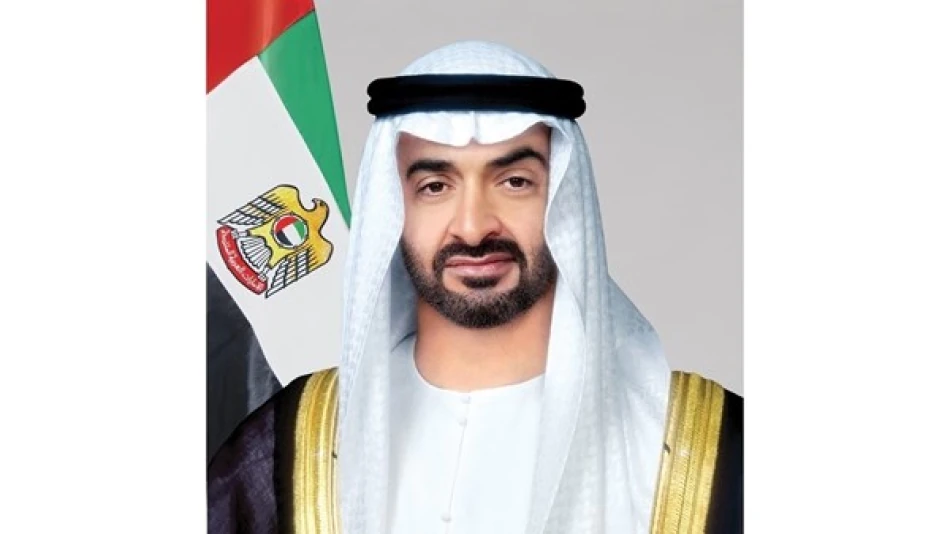
UAE President Congratulates Indian PM Modi on His Birthday
UAE President Extends Birthday Wishes to Modi, Highlighting Strengthening India-UAE Strategic Partnership
UAE President Sheikh Mohammed bin Zayed Al Nahyan publicly congratulated Indian Prime Minister Narendra Modi on his birthday via social media, underscoring the deepening diplomatic and economic ties between two nations that have become increasingly central to Middle East-South Asia trade corridors and energy partnerships.
A Strategic Diplomatic Gesture
In his message posted on X (formerly Twitter), Sheikh Mohammed bin Zayed wished Modi and his family "sincere congratulations on his birthday, wishing him health and happiness and continued work for India's renaissance and the prosperity of its people." The public nature of this greeting reflects the elevated status of UAE-India relations, which have evolved far beyond traditional diplomatic courtesy.
Beyond Protocol: Economic and Strategic Implications
This diplomatic exchange comes at a time when the UAE and India have significantly expanded their bilateral relationship across multiple sectors. The two nations signed a Comprehensive Economic Partnership Agreement (CEPA) in 2022, which has already begun reshaping trade flows between the regions.
Trade and Investment Momentum
The UAE has emerged as India's third-largest trading partner, with bilateral trade reaching approximately $85 billion in 2022-23. For investors and businesses, this relationship represents one of the most dynamic economic partnerships in the Indo-Pacific region, particularly in sectors like renewable energy, fintech, and logistics.
The timing of such public diplomatic gestures often coincides with broader strategic initiatives. Both countries are positioning themselves as key players in alternative supply chain routes that bypass traditional Western-dominated corridors, particularly relevant given ongoing global supply chain disruptions.
Regional Power Dynamics
This birthday message also reflects the UAE's broader strategy of maintaining strong relationships with major Asian economies. Unlike Saudi Arabia, which has sometimes taken more cautious approaches to regional partnerships, the UAE has consistently positioned itself as a bridge between East and West.
Comparison with Other Gulf-Asian Partnerships
The UAE-India relationship mirrors successful models seen in Singapore's approach to regional diplomacy—emphasizing trade, technology transfer, and people-to-people connections. However, the scale of the UAE-India partnership, involving energy security, defense cooperation, and significant diaspora connections, makes it particularly significant for global markets.
For energy markets specifically, this partnership represents a crucial link in India's strategy to diversify its energy imports while the UAE seeks to maintain its position as a regional energy hub even as it diversifies its own economy away from oil dependence.
Market and Investment Outlook
The strengthening UAE-India corridor presents opportunities across multiple asset classes. Infrastructure investments, particularly in ports and logistics, stand to benefit from increased bilateral trade. The financial services sector in both countries is likely to see continued integration, with the UAE serving as a gateway for Indian companies expanding into Middle Eastern and African markets.
This diplomatic warmth also signals stability for the thousands of Indian businesses operating in the UAE and Emirati investments in Indian infrastructure projects, providing confidence for long-term capital allocation decisions in both markets.
Most Viewed News

 Layla Al Mansoori
Layla Al Mansoori






